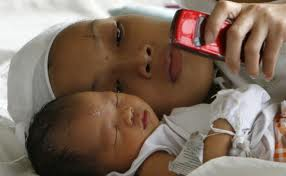When immunisation of newborns jumped dramatically to 85 per cent in Bangladesh’s Habibganj town in 2010, authorities began to take notice of a new mobile phone-based strategy devised by health officer Amjad Hossain.
The difference in Habibganj, where immunisation had hovered at a low 60 per cent until 2000, was achieved after Hossain began registering pregnant women and tracking the progress of mother and child over mobile phone.
Hossain’s initiative found recognition from the Bill and Melinda Gates Foundation that gave him its ‘Vaccination Innovation Award’ for 2011, worth US$ 250,000.
On 24 January 2012 Bill Gates wrote on the foundation’s website: “These (Hossain’s work) may seem like small innovations, but they show how looking at old problems in new ways can make a profound difference.”
“Reaching newborn babies was the main challenge for the vaccinators,” the doctor told SciDev.Net.
“I found that many of the children were being registered four to five months after birth, though they were supposed to be registered within a month of delivery.”
With birth registration late, the vaccination schedule was upset so that infants could not be given their shots on time.
Under the new method, vaccinators put down their mobile phone numbers on the card allowing parents of newborn children to stay in touch with health workers.
Hossain began applying his new strategy in 2004, while working in Tangail as district immunisation officer.
Basit Ali, Tangail district’s medical officer, told SciDev.Net that vaccination coverage in the district, using Hossain’s method, is presently over 85 per cent. “We register pregnant women and our vaccinators then track the baby until it is a year old.”
Manowar Hossain, director-general of health in Bangladesh, said: “We are already following this new method in several districts and vaccination coverage is increasing in the country.”

